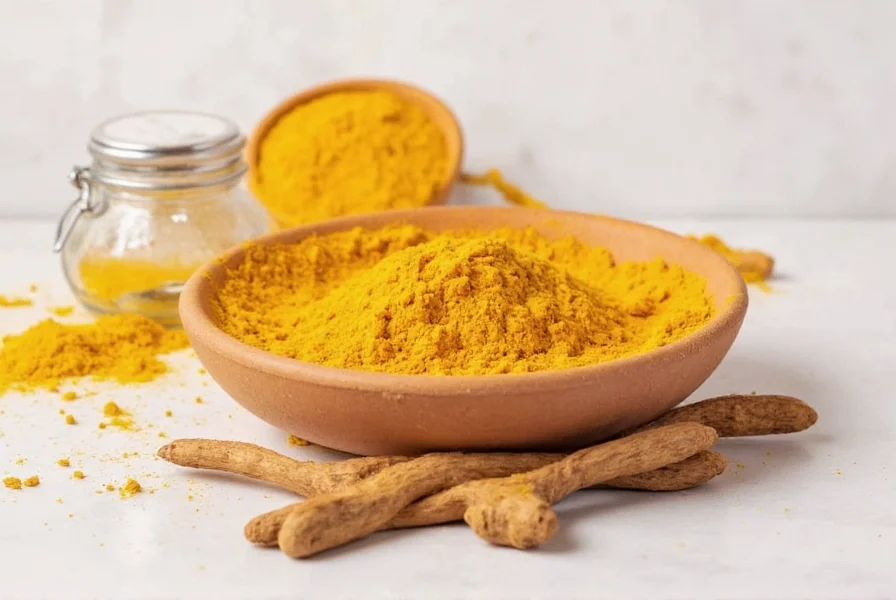Curcumin, the primary bioactive compound in turmeric, has gained attention for its potential role in weight management. While not a magic solution, research suggests it may support metabolic health through anti-inflammatory and antioxidant properties. Understanding the science behind timing can help maximize its potential benefits as part of a comprehensive weight management strategy.
The Science Behind Turmeric and Weight Management
Multiple studies indicate curcumin may influence weight management through several mechanisms. Research published in Nutrition Journal found curcumin supplementation helped reduce body fat percentage and waist circumference in overweight individuals. The compound appears to modulate adipokines (hormones secreted by fat tissue), reduce inflammation in adipose tissue, and potentially influence fat metabolism.
However, it's crucial to manage expectations. A comprehensive review in Complementary Therapies in Medicine concluded that while curcumin shows promise for metabolic health, the effects on weight loss specifically are modest at best. Turmeric should be viewed as a complementary approach, not a standalone weight loss solution.
Optimal Timing Strategies for Turmeric Consumption
The timing of turmeric supplementation significantly impacts its effectiveness due to curcumin's poor bioavailability. Without proper timing and formulation, up to 80% of consumed curcumin may pass through your system unused.
Research from the Journal of Ayurveda and Integrative Medicine demonstrates that taking turmeric with food, particularly meals containing healthy fats, dramatically improves absorption. The fat-soluble nature of curcumin means it binds to dietary fats, facilitating better uptake in the digestive system.
| Timing Approach | Absorption Impact | Practical Recommendation |
|---|---|---|
| With morning meal | Moderate to high (with fats) | Ideal for consistency; pair with breakfast containing avocado or nuts |
| With largest meal | Highest absorption | Optimal for maximum bioavailability; typically lunch or dinner |
| On empty stomach | Lowest absorption | Avoid; results in minimal curcumin uptake |
| Evening before bed | Moderate | Potential sleep disruption for some; not ideal for most users |
Enhancing Turmeric Absorption: The Critical Factors
Timing alone isn't sufficient for effective turmeric supplementation. Two key factors dramatically improve curcumin bioavailability:
1. Piperine Combination
The addition of piperine (found in black pepper) increases curcumin absorption by up to 2,000%, according to research in Planta Medica. This is why high-quality turmeric supplements almost always include black pepper extract. When consuming turmeric in food, adding freshly ground black pepper significantly enhances benefits.
2. Fat Integration
Curcumin is fat-soluble, meaning it binds to dietary fats for better absorption. Consuming turmeric with meals containing healthy fats like olive oil, avocado, or nuts can increase absorption by 7-8 times compared to taking it with water alone.

Practical Implementation Guide
For those incorporating turmeric into their weight management routine, consider these evidence-based recommendations:
- Daily consistency matters most - Choose a timing that fits your routine for regular use
- Aim for 500-1,000mg of standardized curcumin (with 95% curcuminoids) daily
- Always pair with dietary fats - Add turmeric to salad dressings, smoothies with nut butter, or cooked vegetables with olive oil
- Include black pepper - A pinch (about 1/20 teaspoon) of black pepper significantly boosts absorption
- Avoid taking with iron supplements - Curcumin may interfere with iron absorption
Safety Considerations and Realistic Expectations
While generally safe, turmeric supplementation requires consideration of potential interactions. The Journal of Medicinal Food reports that high doses may interact with blood thinners, diabetes medications, and certain chemotherapy drugs. Consult your healthcare provider before starting turmeric supplements if you have medical conditions or take prescription medications.
Most importantly, understand that turmeric alone won't produce significant weight loss. Research shows modest effects at best, typically supporting rather than driving weight management efforts. The most effective approach combines turmeric supplementation with evidence-based weight management strategies including balanced nutrition, regular physical activity, and adequate sleep.

Integrating Turmeric into a Comprehensive Weight Management Plan
For optimal results, view turmeric as one component of a holistic approach to weight management. Consider these complementary strategies:
- Pair turmeric consumption with regular physical activity for enhanced metabolic benefits
- Combine with other evidence-based weight management supplements like green tea extract (after consulting your healthcare provider)
- Monitor your body's response - effects may take 8-12 weeks to become noticeable
- Track overall dietary patterns rather than focusing solely on supplement timing
Remember that individual responses to turmeric vary based on metabolism, gut health, and overall lifestyle factors. What works for one person may need adjustment for another, making consistent daily intake more important than perfect timing.
Frequently Asked Questions
Can turmeric really help with weight loss?
Research shows turmeric (specifically curcumin) may support weight management through anti-inflammatory effects and potential influence on fat metabolism. However, effects are modest at best. A study in Nutrition Journal found participants taking curcumin lost approximately 1-2 pounds more over 30 days compared to placebo when combined with a healthy diet. Turmeric should be viewed as a complementary approach, not a primary weight loss solution.
How long does it take to see results from turmeric for weight management?
Most research indicates it takes 8-12 weeks of consistent daily supplementation to potentially notice effects on weight management. A clinical trial published in the European Review for Medical and Pharmacological Sciences showed measurable changes in body composition after 8 weeks of daily curcumin supplementation (1,000mg with piperine). Individual results vary based on dosage, formulation, diet, and activity level.
Should I take turmeric before or after meals for weight loss?
Take turmeric with meals, not before or after. Research in Molecular Nutrition & Food Research demonstrates that consuming curcumin with food, particularly meals containing healthy fats, increases absorption by up to 8 times compared to taking it on an empty stomach. The fat content in your meal helps solubilize curcumin, while food slows gastric emptying, allowing more time for absorption.
Can I take turmeric at night for weight loss benefits?
While possible, evening turmeric consumption isn't generally recommended for weight management. Some people experience mild gastrointestinal effects that could disrupt sleep. More importantly, taking it with your largest meal (typically not dinner for most people) provides better absorption. If dinner is your main meal, then evening consumption makes sense, but otherwise morning or lunch timing is preferable for consistent daily intake and optimal absorption.
What's the best turmeric formulation for weight management?
Look for standardized curcumin extracts (95% curcuminoids) combined with absorption enhancers. The most researched formulation combines 500-1,000mg curcumin with 5-10mg piperine (from black pepper extract). Some advanced formulations use phospholipid complexes or nanoparticle technology for even better absorption. Avoid plain turmeric powder supplements without absorption enhancers, as studies show less than 1% bioavailability compared to enhanced formulations.











 浙公网安备
33010002000092号
浙公网安备
33010002000092号 浙B2-20120091-4
浙B2-20120091-4